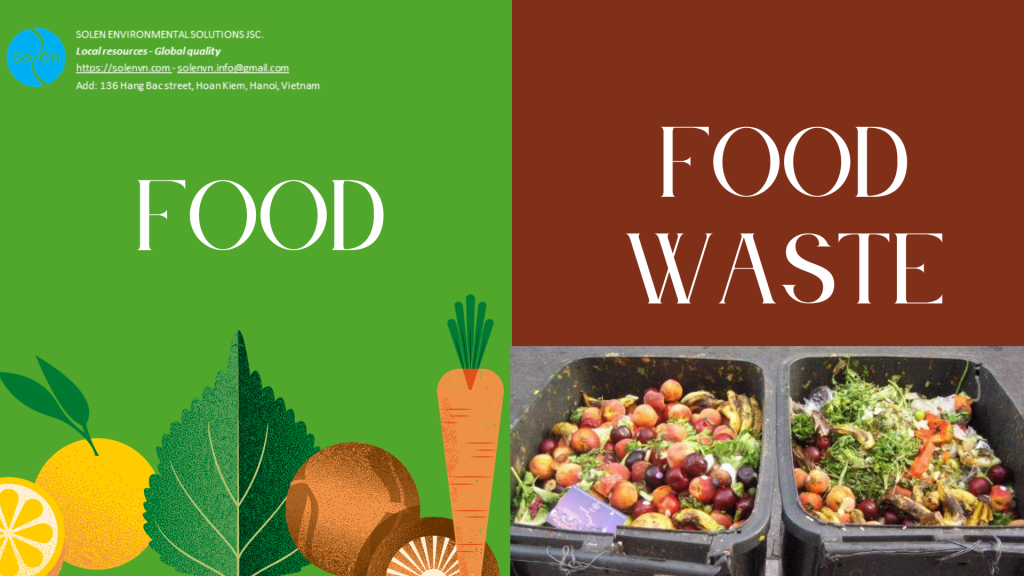Among the many different definitions, there is a lot of confusion between food waste and food loss. In this article, we will show clearer definitions of food waste and food waste.
I. What are food waste and food waste?
– Food waste includes food scraps and waste related to food processing, handling, and consumption. This includes expired foods, leftovers from meals, food scraps, fruit peels, corn husks, egg shells, and other food waste. Food waste is an important part of people’s daily household waste;
– Food waste is perfectly usable food that is being thrown away (wasted), and most food waste occurs at the retail level (supermarkets, stores, and restaurants). or at the consumer’s store. Classy, at home.
II. The reality of food waste
In Vietnam, 8.8 million tons of food are wasted, equivalent to 2% of GDP. Vietnam ranks 2nd in the food waste index in the region. More than half of food waste is created initially by the mentality of giving to those who cannot be present at the meal. Half of the people who keep food in the refrigerator forget about it until it’s no longer edible. More than 1/3 of housewives do not know how to control food portions when cooking, causing excess cooking compared to the family’s dietary needs.

It is worth mentioning that Vietnam is not a rich economy, but the proportion of food waste in solid waste is twice as high as that of rich countries. A World Bank (WB) report said: For every 10 tons of waste in Vietnam, 5-8 tons are biodegradable organic waste, of which the majority is food waste. The more developed a country, the lower the proportion of food waste in production waste – an average of 32% compared to 57% in less developed countries.
III. What can we do to reduce food waste?
- Adopt a healthier, more sustainable diet: Life is fast-paced, and preparing nutritious meals can be challenging, but healthy meals don’t have to be fancy. The Internet is full of quick healthy recipes that you can share with your family and friends.
- Buy only what you need: Plan your meals Make a shopping list and stick to it, avoid impulsive shopping. Not only will you waste less food, but you’ll also save money!
- Choose ugly fruits and vegetables: Don’t judge food by its appearance! Oddly shaped or bruised fruits and vegetables are often thrown away because they do not meet arbitrary cosmetic standards. Don’t worry – they taste the same! Use mature fruit to make smoothies, juices, and desserts.
- Take advantage of food waste: Instead of throwing away food scraps, compost them. This way, you return nutrients to the soil and reduce your carbon footprint.
- Ethical Choice editorial team. Food Waste: Definition and Understanding. 2023. From: https://myethicalchoice.com/en/
- Jangira Lewis. How does food waste affect the environment? 2022. Earth. Org. From: https://earth.org/how-does-food-waste-affect-the-environment/
- The authors. 15 quick tips for reducing food waste and becoming a Food hero. 2020. Food and Agriculture Organization of United Nations. From: https://www.fao.org/fao-stories/article/en/c/1309609/



 Tiếng Việt
Tiếng Việt 日本語
日本語